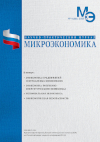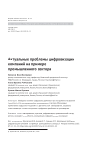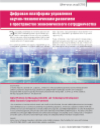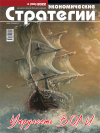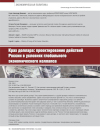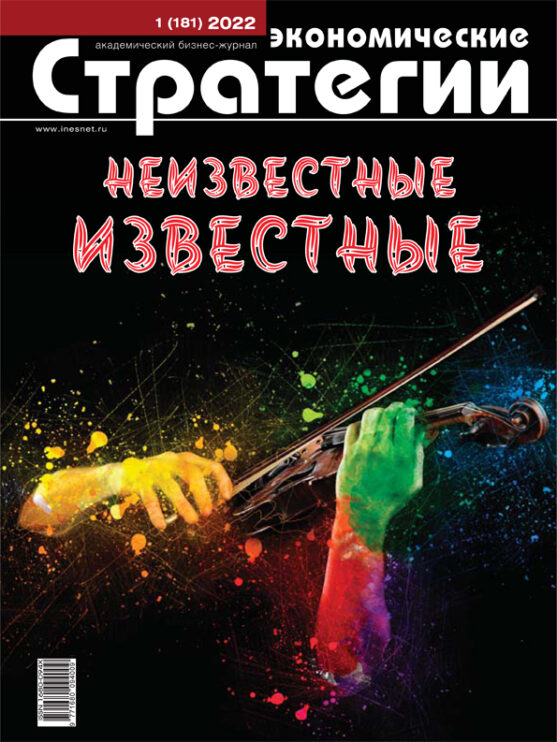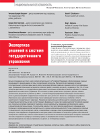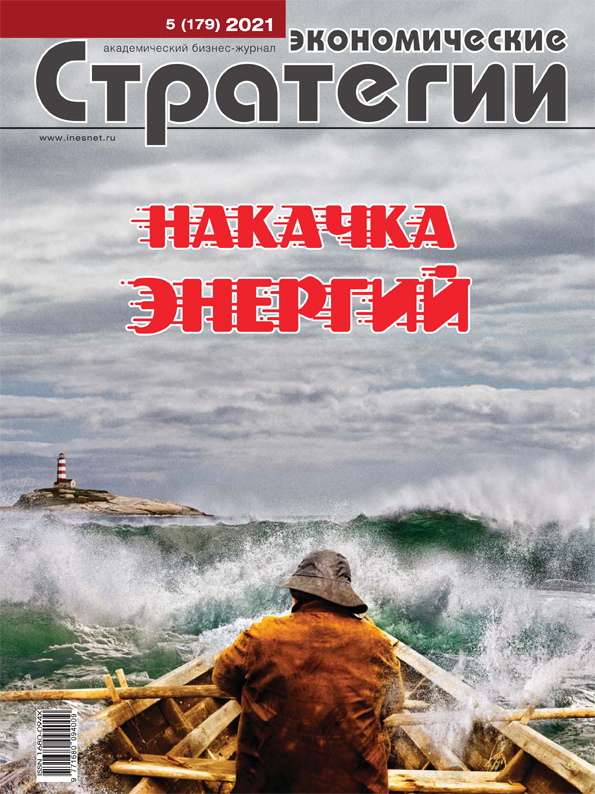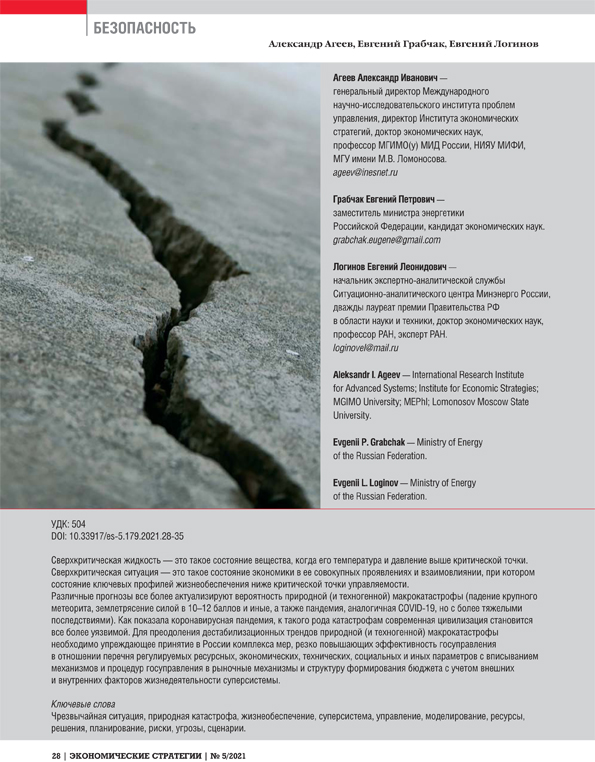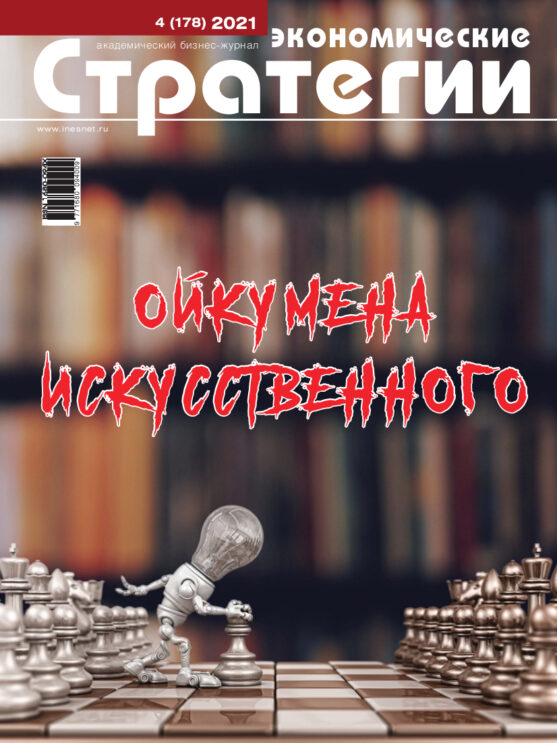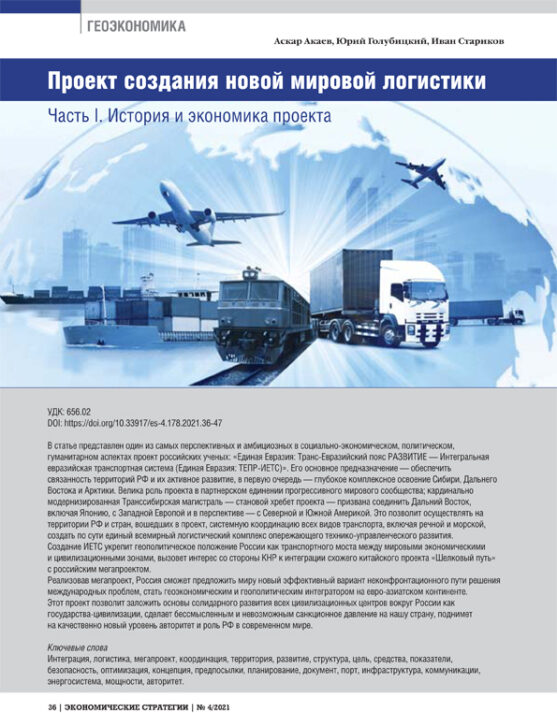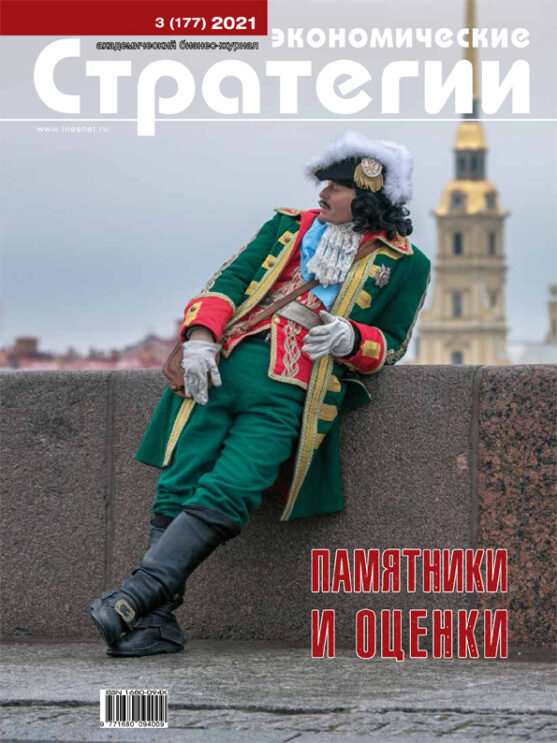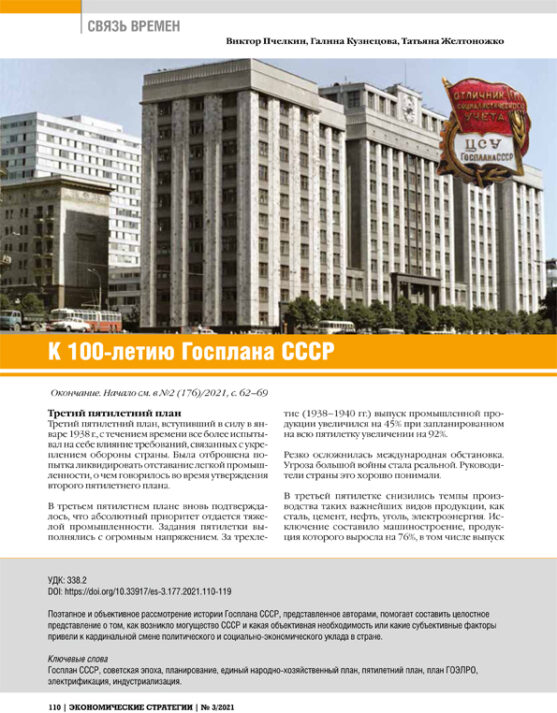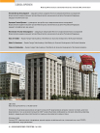Experience of military-civilian merger in the USA and China: new organizational and strategic engineering is needed in the Russian defence and civilian industries
DOI: 10.33917/mic-4.117.2024.5-17
In the United States and China, in conditions of preparing for a major war, there is an intensive restructuring of not only the armed forces, but also the industry that provides military needs. The key trend is the development and implementation of civil-military merger strategies. The Russian experience in conducting Special Military Operation, including an analysis of NATO’s problems with providing equipment and weapons to Russia’s real and potential military opponents and countering these processes by the Russian defence industry, has actualized the problem of developing a new approach to organizational and strategic engineering in the Russian defence and civil industries and scientific-technical sector.
References:
1. Ageev A.I., Loginov E.L. Russia in the new economic reality. Moscow, INES, 2016. 460 p.
2. Ageev A.I. Dynamics and structure of global risks. Civil defense strategy: problems and research. 2013;3(2(5)):7–8.
3. Ageev A.I., Bakhtizin A.R., Makarov V.L., Loginov E.L., Khabriev B.R. Economic Foundation of Victory: a Strategic Forecast for the Russian Economy Stability in the Face of Sanctions. Economic strategies. 2023;25(3(189)):6–15. DOI: https://doi.org/10.33917/es-3.189.2023.6-15
4. Ivanov S. US military innovation. Infrastructure and projects. Mirtesen, 2021, September 15. URL: https://s30116489994.mirtesen.ru/blog/43322544035/Voennyie-innovatsii-SSHA-Infrastruktura-i-proektyi
5. Kokoshin A.A. Military reform in China in 2015–2020: defense and foreign policy aspects. Moscow, ISPI RAN, 2016. pp. 39.
6. Ageev A.I., Kapustyan S.G., Korobkin V.V. State and forecast expectations for the development of the global robotics market. Artificial Intelligence. Theory and Practice. 2023;3(3):50–58.
7. Grabchak E.P., Loginov E.L., Chinaliev V.U., Epishkin I.I. Management of the development of complex scientific and technical complexes based on intelligent digital platforms (implementation of the competencies of the USSR State Committee for Science and Technology in the digital economy). Moscow, Institute of Economic Strategies, 2023. 504 p.
8. Ageev A.I., Loginov E.L., Efremov D.N. The State committee for Scientific-Technical Policy: center of network concentration of Scientific-Technical Ties in Key Knowledge Areas for Integrated management in the Science and engineering field. Economic strategies. 2014;16(8(124)):12–21.
9. Grabchak E.P., Loginov E.L. Management of research, power engineering and electric power companies as elements of an integrated industrial technological complex: Instrument making in the 21st century – 2020. Integration of science, education and production: Sat. materials of the XVI All-Russian Scientific and Technical Conference. Izhevsk: Izhevsk State Technical University named after M.T. Kalashnikov, 2020. pp. 16–21.
10. Grabchak E.P., Loginov E.L. Formation of an integrated information environment for digital support of life cycle management processes of scientific and technical research and development in the Russian electric power industry: Modern information technologies. Theory and practice: Materials of the V All-Russian Scientific and Practical Conference. Cherepovets: Cherepovets State University, 2020. pp. 32–35.






